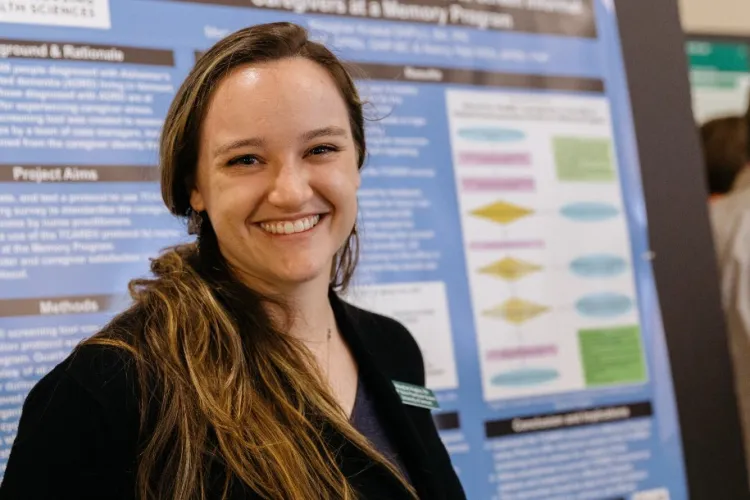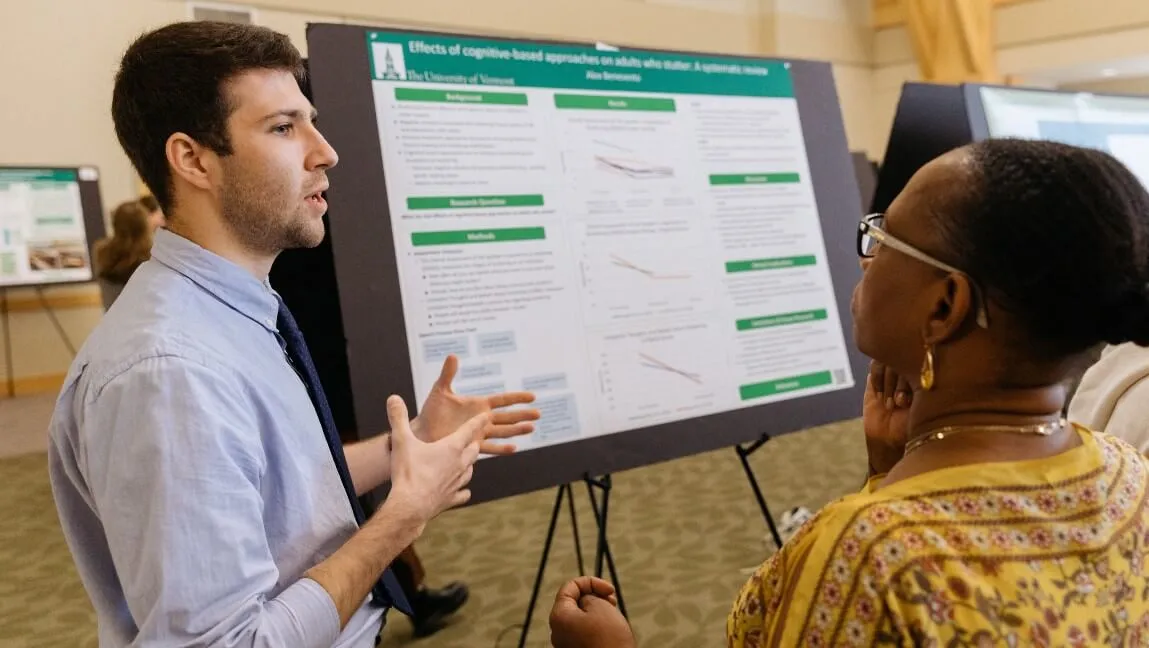The 2023 Zeigler Research Forum featured 77 student poster presentations, research talks by College faculty, the Zeigler X Forum, and a keynote on equity in public health.
Dean Noma Anderson opened the forum by expressing appreciation for the student researchers and their faculty mentors. Public Health Sciences Program Director Deb Hinchey then introduced keynote speaker Ichiro Kawachi, MB.Ch.B., Ph.D., the John L. Loeb and Frances Lehman Loeb Professor of Social Epidemiology at the Harvard T.H. Chan School of Public Health.
Kawachi, a social epidemiologist, discussed the impact of income inequality on well-being, calling it a preeminent threat to 21st-century population health.
“Social epidemiologists know very well that income is a determinant of longevity,” said Kawachi. "All other things being equal, a more egalitarian society will have a higher level of health and well-being compared to a less egalitarian society.” Introducing the theory of concavity to describe the positive trend between higher income and better health, Kawachi emphasized that the distribution of incomes matters, independent of the average level of income, concerning population health.
The share of incomes in the U.S. during the past four decades is characterized by redistribution from the bottom 50% to the top one percent. “It’s like the opposite of Robin Hood. It’s a reversal of the burden,” said Kawachi.

Vermont is one of the most egalitarian states in the nation. Still, when an income gap widens, unfavorable social comparisons can result in people who feel left behind. And while a family earning the current median income of $63,000 in VT may not be deprived in the sense of lacking resources to meet basic needs such as food, shelter, and access to health care, they may begin to feel relatively deprived when incomes in the top half of the distribution rise at a faster pace than the middle. Relative deprivation creates what the economist and philosopher Amartya Sen refers to as a capability failure - the failure to obtain the capability of functioning and participating fully in society - which can lead to the detrimental increase in "diseases of despair" among working-class Americans caused by the use of opioids and alcohol to assuage pain, Kawachi said. Feelings of relative deprivation stemming from comparisons to their peers can also affect the behavior of rich people in ways detrimental to public health, Kawachi emphasized - by driving conspicuous consumption and fueling a lack of empathy for those who cannot provide for themselves, for example.
Kawachi said he considers the most crucial theory of the impact of income inequality on population health to be “pollution effects.” Among these are the excessive pollution of the planet by private planes and superyachts hastening climate change that affects people's health; disproportionate payment of income taxes; and national politics' growing reflection of the priorities of the rich, which translates to cuts in social spending that affect the quality of life for the bottom 99 percent of the population.
“I think the greatest threat to society in the world is apathy,” Kawachi concluded. “I don't want to view inequality as being natural, normal, inevitable, and deserved.”
Meaghan Knakel, G '23, who attended the Zeigler Forum to present the results of her Doctor of Nursing Practice project that introduced a health and wellbeing screening tool for caregivers of patients with Alzheimer's disease, said she appreciated the evidence Kawachi presented to validate what many health professionals regularly observe in the healthcare setting. “It's going to be helpful for all of us moving forward as future practitioners,” said Knakel.

Following Kawachi's keynote, College of Nursing and Health Sciences faculty presented a series of mini-talks. Biomedical and Health Sciences Professor Bikki Tran Smith, Ph.D., M.A., discussed her research on the experiences of Afghan refugees navigating healthcare and health resources access in rural Vermont. Kathryn Fagan, a master's degree candidate in the Communication Sciences and Disorders program, shared the results of a pilot investigating autobiographical memory. Nursing Professor Elise Tarbi, Ph.D., M.B.E., APRN, shared the results of her study on improving communication between clinicians and patients with serious illness; and Rehabilitation and Movement Science Professor Timothy Tourville, Ph.D., ATC, discussed the evaluation of muscle adaptations following ACL reconstruction. Poster sessions highlighted research by students and faculty members on topics ranging from community-based Narcan distribution to increasing access to primary care services to physical function in older adults to the impact of COVID-19 school closures on students' reading skills.
The College of Nursing and Health Sciences has $7.1 million in active research funding awards. Faculty have secured $2.1 million in funding in fiscal 2023.
The Zeigler Research Forum was established in 2010 to honor Jim Zeigler, who passed away in 1984 from non-Hodgkin’s lymphoma six months after graduating from UVM with a bachelor’s degree in physical therapy.
